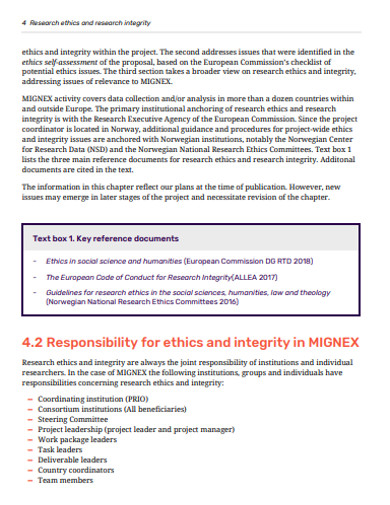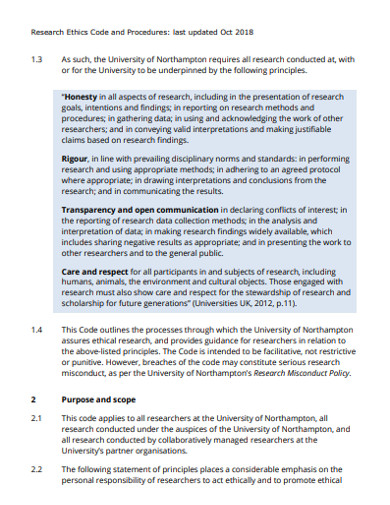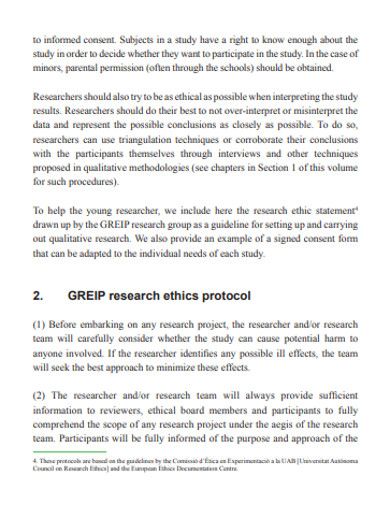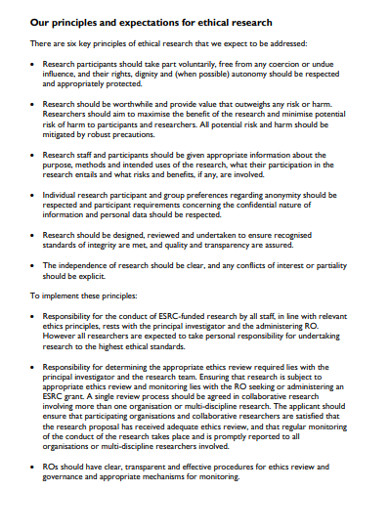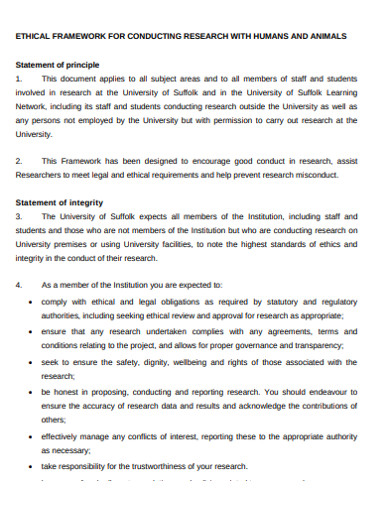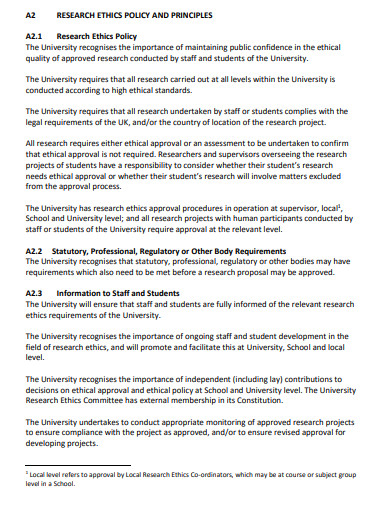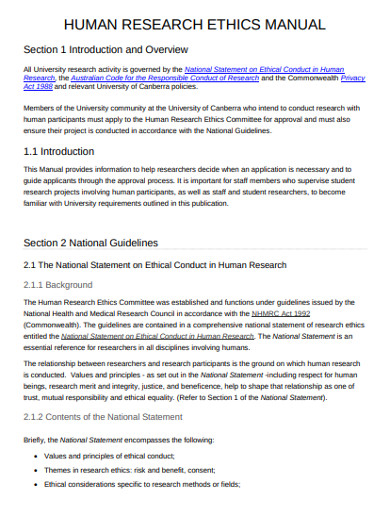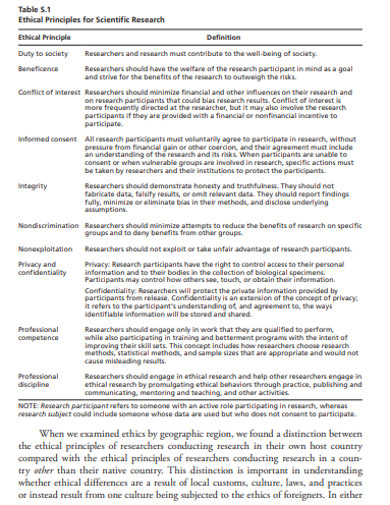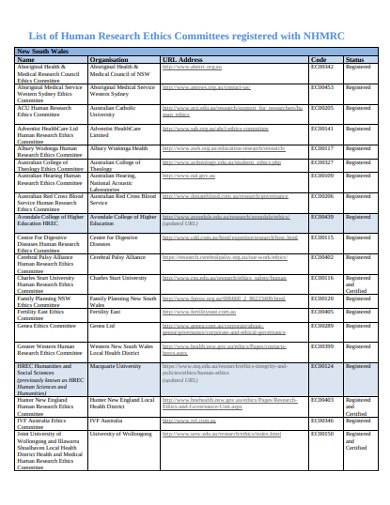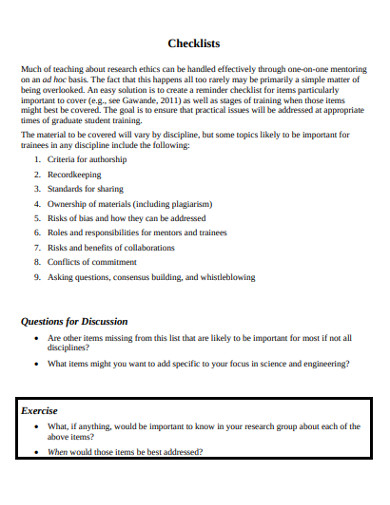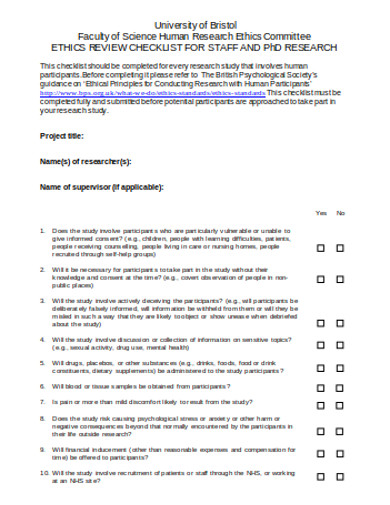10+ Research Ethics Examples to Download
According to the article posted in TheScientist, Paolo Machiarini, a trachea surgeon, was one of the researchers that the authorities reported committing research misconduct. The site reported that while at the Karolinksa Institute, the said researcher conducted transplant experiments that resulted in the death of some participants. This controversial biomedical research ethical issue pushes the authorities of Sweden to implement a law about research misconduct. This law allows the government to create an agency that will investigate clinical researches, among other types of studies, for possible research misconduct.
What is Research Ethics?
Ethics, in general, is a philosophy that deals with what is right and wrong. This thinking applies to research projects because it ensures that researchers are maintaining a high ethical measure in all affecting factors. When conducting studies, such as qualitative research in medicine, you should consider factors such as the way you are treating animal and human subjects. Through this philosophy, individuals, such as qualitative research ethics committees can create guidelines that teach to avoid research misconduct, such as the incident that we mentioned earlier.
What is Bioethics?
Among the studies that experts conduct, biological and medical examinations are a few of the most delicate ones because it may involve animals and human value. However, to maintain high ethical standards, experts address its ethical implications and application through the field of bioethics. This field tackles the extensive inquiries that concern human affairs in which coverage includes the arguments of boundaries life, such as abortion and euthanasia, and the limited health care support allocation.
10+ Research Ethics Examples
Below is a list of examples that we collected, which you can use to study further about research ethics. You can download these documents in PDF format.
1. Research Ethics and Integrity Example
2. Research Ethics Code and Procedures Example
3. Research Ethics Protocal Example
4. Framework for Research Ethics Example
5. Human Research Ethics Example
6. Research Ethics Policy Example
7. Human Research Ethics Manual Example
8. Ethical for Scientific Research Example
9. Sample List of Human Research Ethics Example
10. Research Ethics Checklist Example
11. Staff Research Ethics Example
How to Avoid Ethical Problems?
In carrying out an educational or academic study in psychology and other science sectors, there are critical things that you must keep in mind. It is to ensure that you are conducting the research responsibly, which we are going to discuss in this section.
1. Firstly, Talk about Intellectual Property
Scenarios such as disagreements in getting the credits can occur if conducting a research project involves a group of contributors. With this in mind, it is practical to discuss the matters concerning intellectual property before doing anything else. Individuals such as psychologists should take credits only when they have essential contributions to the project. Additionally, holding a prominent position in an organization does not guarantee acknowledgment to the project.
2. Observe the Confidentiality and Privacy
As a researcher, keep in mind that the information you need can be too personal and sensitive. Thus, it would help if you consider the survey questions that you are going to ask the participants. Since they have the right to choose the information that they want to give, it is essential to select your study’s participants carefully. Consider discussing the purpose of the data that you are going to gather and how you will collect this information. Know the valuable information, such as the laws involving your research and data sharing, especially if you are planning to gather the information through the internet.
3. Be Conscious of Multiple Roles
If you are a professor who conducts a study that requires the participation of specific individuals, such as students, you must not use your position to compel your students to participate unless it is part of the syllabus and has educative value for them. To ensure that people are not joining due to the influence of your power, they should participate in the study voluntarily.
4. Adhere to the Consent Rules
In conducting psychology research, as per APA’s Ethics Code, you must inform the participants about the necessary information, such as the relevant risks and benefits of participating in the study. The details they need to know may include the purpose of the research and its duration and process. They should also understand the factors that may affect their decisions to join, such as potential risks, discomfort, and the consequences of joining the activities involved. With this in mind, they should know that they have the right to refuse to participate and withdraw from their participation in the middle of the project process. Other things that they must be aware of are the confidentiality limits, including the instances where they can disclose the information, incentives of joining, and the contact details for their further inquiries.
5. Utilize the Ethics Resources
To ensure that you are adhering to the ethical standard in conducting research, it would help if you have mastered your moral obligation as a researcher, for it will allow you to know what to avoid and what do to fix its concerning problems. That’s why it is essential to know all the necessary resources that contain this information.
Conducting researches can be essential to study the nature of the things around us, for it helps us make our lives better. However, in doing this activity, you should be aware of the consequences that it brings, especially to the adverse effects of executing its process. Learning research ethics is one way to ensure that every research methodology that you are going to carry out is following the moral philosophy.



